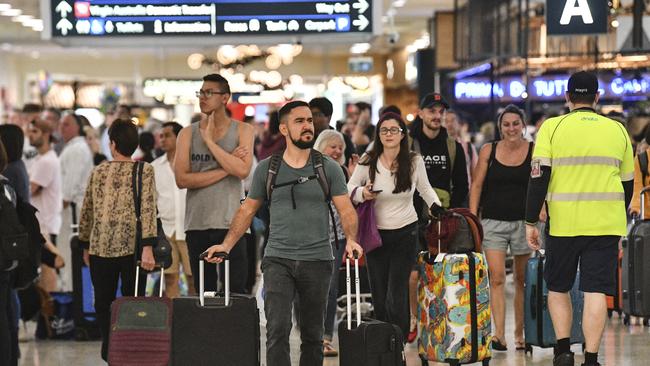‘Open for business’: Skilled migrants key to Australia’s jobs crisis
As Australia looks to overcome the current jobs crisis it needs to attract more skilled migrants and provide a simpler path to permanent residency, according to a new Deloitte report.
Skilled migrants and simpler pathways to permanent residency are looking increasingly likely to be the solution to Australia’s record high job vacancies.
According to Deloitte Access Economics’ latest quarterly Employment Forecasts report, high growth in white collar sectors is likely to be driven by skilled migrants no longer deterred by border uncertainty and travel restrictions.
For the first time since the pandemic, the number of people arriving in Australia seeking long-term and permanent residency is higher than those leaving, although still not at the net migration levels seen pre-Covid.
The recreation sector is predicted to experience the highest growth in white collar employment as overseas students and tourist return, supplying an additional 67,500 workers.
Other industries believed to benefit from skilled migrant workers are health and social work, and information media, as experts say there are simply not enough Australians to meet the demand.

The report predicts white-collar employment will grow 1.6 per cent each year for the next decade, outperforming total national employment, which is forecast to grow on average by 1.4 per cent a year.
Deloitte partner and national leader, global employer services, Fiona Webb, said policy changes needed to be implemented to keep attracting skilled workers to Australia and pre-Covid levels would likely return between 2023 and 2024.
“Alongside policy to ensure we are developing the necessary skills for the future within Australia, there needs to be a focus on overhauling our needlessly complex skilled migration system to ensure we can also attract workers with the skills we need,” Ms Webb said.
“The highest order priority is to clearly signal to the world that Australia is open for business. Our pandemic-era border policies created a lingering level of uncertainty among potential skilled migrants.
“They want to know they will be able to get in and out of the country without complication and have greater certainty about longer term options to remain in Australia – that is, pathways to permanent residency.”
Deloitte Access Economics partner and report lead author, David Rumbens, echoed the recommendations made by Ms Webb, while also encouraging larger intakes of humanitarian migrants.
“Migration comes in many forms, and while skilled migrants have been a recent key focus for business and the media, there are also other streams that can enhance Australia’s pool of labour. We have a great opportunity to expand our existing humanitarian migration program, with the longer-term economic and social benefits of doing so profound,” Mr Rumbens.
Ms Webb listed costs, workplace flexibility and residency programs as the areas most in need of urgent reform, highlighting “the cost of hiring a foreign national is three times that of a local employee.”
The report comes as Australia’s unemployment rate hit a 50-year low, sitting at 3.4 per cent in July and the labour force participation rate reached a near-record high at 66.4 per cent.






To join the conversation, please log in. Don't have an account? Register
Join the conversation, you are commenting as Logout